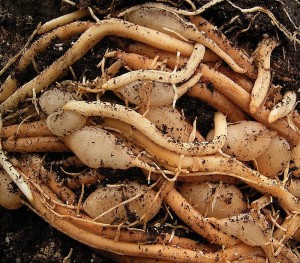Asparagus tuber is a plant. The newly formed shoots (spears), root, and “underground stems” (rhizomes) are used to make medicine.
Contents
Uses
Asparagus is used along with lots of fluids as “irrigation therapy” to increase urine output. It is also used to treat urinary tract infections and other conditions of the urinary tract that cause pain and swelling.
Other uses include treatment of joint pain (rheumatism), hormone imbalances in women, dryness in the lungs and throat, constipation, nerve pain (neuritis), AIDS,cancer, and diseases caused by parasites.
Asparagus is also used for preventing stones in the kidney and bladder and anemia due to folic acid deficiency.
Some people apply asparagus directly to the skin for cleaning the face, drying sores, and treating acne.
In foods, asparagus spears are eaten as a vegetable. This can produce a pungent odor in the urine.
The seed and root extracts of asparagus are used in alcoholic beverages.
Benefits
Scientists have been using tuber Asparagi Cochinensis together with Bulbus Lilli (Bai He), Radix Glehniae Littoralis (Sha Shen) during clinical researches to study the treatment for lung cancer when a patient may be enduring dry throat and/ or constipation. When a decoction prepared with one sachet containing these medications in water and administer to such patients hot orally in three equal dosages – morning, noon and night, it was found that the degrees of bronchitis, esophagitis and pneumonitis stimulated by radiation were remarkably lower in the group that received this treatment compared to those who were not administered the decoction. Researchers are of the opinion that the findings of these clinical studies, treating patients with the conventional Chinese herbal medications founded on different patterns together with the radiation therapy may help to accomplish comparatively enhanced temporary survival rates and superior restricted power over tumors. In such a situation, apart from those due to the radiation therapy, the side effects are also expected to be low.
A different study conducted by scientists documented that the vigorous elements found in asparagus may possibly slow down the TNF-alpha (also known as the tumor necrosis factor) discharge by restraining the IL-1 secretion. In addition, these active ingredients enclosed in asparagus may also have anti-inflammatory functions in the central nervous system. The findings of this study demonstrated that there was no connection whatsoever between the elements enclosed by sarsaspogenin and the other species of asparagus. In fact, the content of sarsaspogenin in the rhizomes of Asparagus Cochinchinensis was found to be in opposite proportion with the marketable grade within identical species. Sarsaspogenin found in the tubular roots of the plant are often blended with other herbs while providing chemotherapy for breast cancer patients.
Asparagus is also recommended by herbal medical practitioners to treat diabetes, malignant lymphoma, multiple sclerosis (chronic degenerative disease of the central nervous system), migraine headaches and systemic lupus erythmatosus. However, it is regrettable that researches conducted on treating these disorders so far are not enough. In addition to the above conditions, the herb is utilized as the base element in phytoestrogen (a chemical compound with estrogenic properties) dietary enhancements. The herb has supplementary functions in the case of constipation or irregular bowel movements where it acts as a moistening agent and is also effective in other ailments where the body continues to loose fluids unnecessarily, such as in the instance of continuing sweats during nights as well as night-time discharges. What is significant regarding asparagus is that almost all parts of the herb enclose elements that have shown tentative anti-tumor functions and there is ample indication of the fact that it may prove to be effective in treating deadly cancer.
Cautions
Asparagus is safe when eaten in food amounts. However, there isn’t enough information to know if asparagus is safe when used in larger medicinal amounts.
Asparagus can cause allergic reactions when eaten as a vegetable or used on the skin.
Special Precautions & Warnings:
Pregnancy and breast-feeding: Asparagus is UNSAFE to use in medicinal amounts during pregnancy. Asparagus extracts have been used for birth control, so they might harm hormone balances during pregnancy.
Not enough is known about the safety of using asparagus in medicinal amounts during breast-feeding. It’s best to stick to food amounts.
Allergy to onions, leeks, and related plants: Asparagus might cause an allergic reaction in people who are sensitive to other members of the Liliaceae family including onions, leeks, garlic, and chives.
Interactions
Lithium interacts with ASPARAGUS
Asparagus might have an effect like a water pill or “diuretic.” Taking asparaus might decrease how well the body gets rid of lithium. This could increase how much lithium is in the body and result in serious side effects. Talk with your healthcare provider before using this product if you are taking lithium. Your lithium dose might need to be changed.
Other names
Asparagus officinalis, Asparagi Rhizoma Root, Asperge, Asperge Comestible, Asperge Commune, Asperge Officinale, Asperges, Espárrago, Espárragos, Garden Asparagus, Spargelkraut, Spargelwurzelstock, Sparrow Grass
References
Source: Herbs2000, http://www.herbs2000.com/herbs/herbs_asparagus.htm

